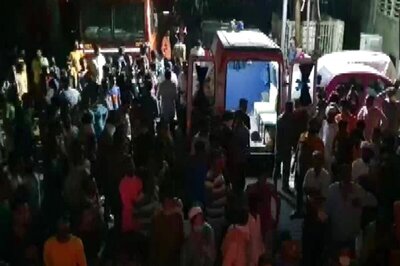
views
Chennai: Initial steps for the construction of another fast-breeder test reactor powered by metallic fuel at Indira Gandhi Centre for Atomic Research (IGCAR) complex at Kalpakkam has begun, a senior official said on Monday. "The government had initially sanctioned Rs 25 crore for the 120 MW metallic fuel test reactor (MFTR). Around Rs.6 crore is expected to be spent by the end of this fiscal on geo-technical investigations for the proposed project," an official not wanting to be named told IANS.
The proposed MFTR will be the third reactor for IGCAR which already has a 14 MW fast breeder test reactor (FBTR) and a mini Kamini (Kalpakkam mini reactor). It will be the seventh reactor as a whole for the Kalpakkam nuclear complex, around 70 km from here. Two pressurised heavy water reactors (PHWR) of 220 MW capacity of Madras Atomic Power Station (MAPS) belonging to Nuclear Power Corporation India Ltd (NPCIL) are already functioning.
The 500 MW IGCAR designed prototype fast-breeder test reactor (PFBR) is being built by Bharatiya Nabhikiya Vidyut Nigam (Bhavini). A small light water reactor belonging to Bhabha Atomic Energy Centre (BARC) is also operational at the Kalpakkam nuclear complex. With Bhavini planning to build two more 500 MW fast reactors sometime in the future, Kalpakkam nuclear complex will become one of the world's noted "island" of fast reactors, housing five units. A fast-breeder reactor is one which breeds more material for a nuclear fission reaction than it consumes. It is the key to India's three-stage nuclear power programme.
According to the IGCAR official, the MFTR construction is expected to begin in a couple of years. The official added that additional manpower would not be required for MFTR as the existing resources would be sufficient. The MFTR will be the test bed for designing a 1,000 MW fast reactor to be powered by metallic fuel, a mix of 20 percent plutonium and 80 percent uranium. The metallic fuel has better breeding ratio as compared to the mixed plutonium-uranium oxide (MOX) fuel that would power PFBR and the two 500 MW fast reactors at Bhavini.



















Comments
0 comment